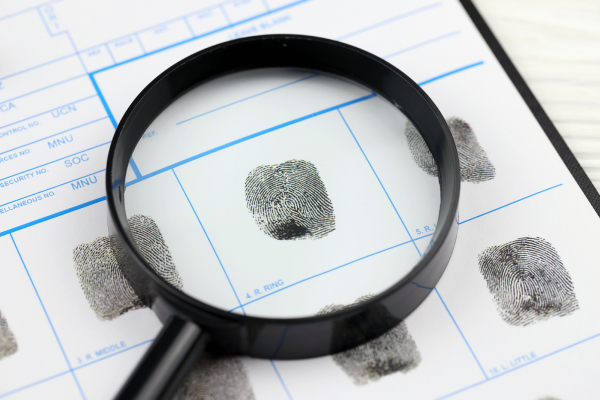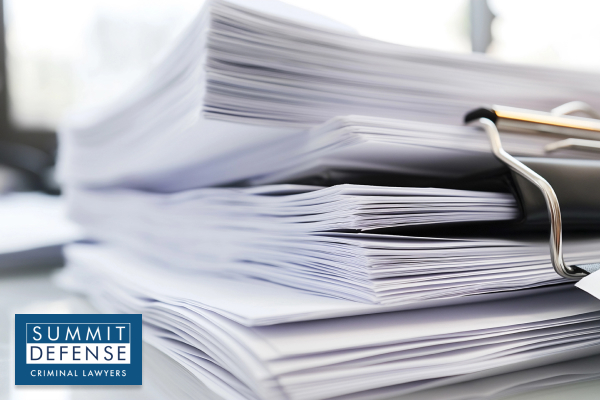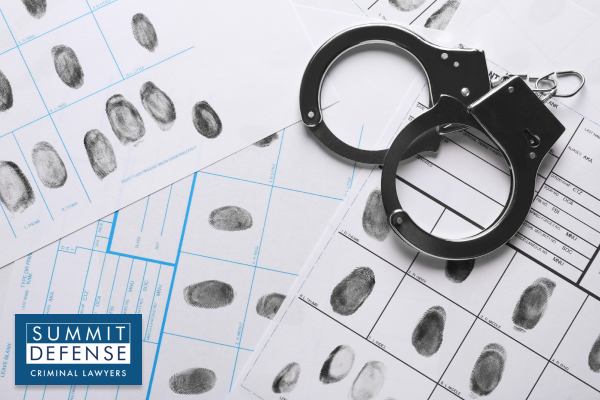



Criminal records are documents that detail a person's criminal history. Courts, police, and other law enforcement agencies keep these public records. When put together, these files create a "rap sheet" - a list of someone's past law troubles.
A person's criminal record shows arrests, charges, court dates, convictions, and sentences. It may also list if they are on probation or have paid fines. Some records have lots of details about the crime, while others just show basic details such as the date of arrest and charge. What's in the file depends on which agency has the records and what state they're from.
Not all items in criminal history records mean the person did something wrong. A criminal background check might show arrests without charges or charges that were dropped. This is key when looking at someone's criminal history since just being arrested doesn't mean the person broke the law.
Law enforcement keeps these records to track people in the justice system. The files follow each step, from when a police officer stops someone to the final court decision. These records help courts make fair decisions and offer essential background information for future cases.
Criminal records include several kinds of information about past legal troubles. Arrest records show when police took someone into custody. These files list the date, the alleged crime, and the arresting officer.
Conviction records are more serious because they show when someone was found guilty. This could happen after a trial or if the person admitted guilt. Courts keep these conviction records in their files. Some criminal history also includes cases that were dismissed or where the person was found not guilty. In some cases, records can be sealed or erased, which means the general public can't see them anymore.

States also keep criminal background information, often through their justice department. To see these databases, you might need to make a formal request, fill out forms, and pay a fee. The cost is usually between $10 and $50 per search. In Northern California, you can visit county offices in person or use the California Department of Justice website to request records.
For federal criminal records, you need to search the federal court system or submit a request to the FBI. Just remember that federal records only show federal crimes, not state or local ones. The FBI keeps fingerprints and criminal history in its databases, which helps it track violent offenders and other criminals.
Getting records through official channels gives you more accurate information, but it takes time. When you submit your request, you need to provide the person's full name and sometimes their fingerprints to make sure you get the right records.
Your access to criminal records depends on who you are. Law enforcement agencies can see more than private citizens or companies. As a private citizen, you face more limits when trying to see someone's complete criminal background. For example, you might not be able to see details about certain convictions or cases involving minors.
While criminal records are public documents, not everyone can see all parts of a person's criminal record. Some records aren't available for public view. For example, juvenile records are usually sealed, so the general public can't access them. Records that have been expunged or sealed by a court also won't show up in normal background checks.
Privacy laws limit how criminal background information can be used. The Fair Credit Reporting Act creates rules about how companies can conduct background checks. In many cases, they need permission from the subject being checked. This means you can't always run a check on someone without them knowing, especially for job or housing decisions.
Some states have added rules that further limit access to criminal records. California enforces "Ban the Box" legislation, which prevents employers from probing an applicant about their criminal history. These rules try to balance the public's right to information with people's privacy rights and a chance for a fresh start after serving their sentence.

These services charge fees ranging from $15 for a basic search to over $100 for a detailed check. Companies like BeenVerified, TruthFinder, and Intelius offer different levels of detail in their reports. While these services are convenient, they might not have the most current information, and their databases might not include records from all courts.
When using a private company for background checks, always verify important information through official sources before making decisions. Remember that these companies collect data from public sources and might miss recent updates, dismissed charges, or expunged records that would appear in official court records.
Commercial background check services make it easy to access criminal record information. They're simple to use and give fast results without making you search multiple government websites or visit courthouses. These services often combine information from many courts into one report, saving you time.
But commercial background checks have downsides, too. The information might be outdated or missing vital details. They might not show recent cases or might include expunged records that should no longer be visible. There's also the risk of mixing up people with similar names. Before making decisions based on these reports, always check the information with official sources and be aware of possible errors.
Federal law and state law have strict rules about how criminal records can be used, especially for jobs, housing, and loans. The Fair Credit Reporting Act requires employers to get written permission before doing background checks. If they decide not to hire someone based on what they find, they must follow specific steps.
Many states protect people with criminal records. These include "Ban the Box" laws that stop employers from asking about criminal history on job applications. In California, employers generally can't consider arrests that didn't lead to convictions, convictions that have been dismissed, or diversion programs when making hiring decisions.
Misusing criminal record information can lead to serious legal problems, including discrimination claims and fines. If you're checking someone's criminal history for employment purposes, make sure you understand all the rules and follow the right process to avoid legal issues.
Employers face specific limits when using criminal background checks when hiring. Under federal law, employers must treat similar criminal histories the same way for all job candidates to avoid discrimination. This means you can't apply different standards based on a person's race, national origin, or other protected traits.
In California, employers must wait until after making a job offer before asking about criminal history or running a background check. If you decide not to hire someone because of their record, you must show that the conviction relates directly to the job duties. You also need to tell the applicant, give them a copy of the report, and let them respond with evidence of rehabilitation before making a final decision.

To check if criminal records are accurate, you often need to look at multiple sources. Compare information across different databases and courts. If you find differences, contact the court or law enforcement agency to confirm the details. This might mean looking at the original court documents or talking to court clerks who can access the complete file.
For employers, it's very important to verify negative information before making decisions. This protects you from potential lawsuits and ensures fair treatment. Wrong criminal records can stop qualified people from getting jobs, housing, or other opportunities.
Background check errors happen more often than most people think. Name mix-ups are very common, especially for people with common names. As an example, John Smith might be confused with another John Smith who has a criminal record. A search might pull up all versions of a name (Robert, Bob, Rob) without making sure they're the same person.
Other common errors include showing outdated information, such as arrests without noting that charges were dropped or failing to update records after expungements. Sometimes, reports might include sealed juvenile records that should not be visible to the public. These mistakes can harm someone's reputation and future.
If you find errors in your criminal record or a background check about you, you have the right to fix this information. Start by getting a copy of your complete criminal history from the FBI or your state's records office. Look through it carefully to find any mistakes or outdated information that should have been removed.
To fix official records, contact the agency that keeps the wrong records—usually the court where the case was handled or the police department that made the arrest. Submit a written request for correction and include any documents that prove the information is wrong. You might need to sign forms and pay a small fee to file your claim.
For errors in commercial background checks, you can file a dispute with the company that provided the report. Under the Fair Credit Reporting Act, these companies must look into disputed information and fix any errors within 30 days. This process helps ensure that the information provided about your criminal background is correct.

As Northern California's largest criminal defense law firm, we have the knowledge to handle these complex issues. Don't let mistakes about your past hurt your future. Contact us today for a free, confidential consultation where we can answer your questions and create a plan for your specific situation.
latest News
A federal jury in the Eastern District of California, in Sacramento, on Thursday, March 26, 2015, acquitted two defendants, Deborah Loudermilk and Buena Marshall, of mail fraud charges arising from allegations that they participated in a 2006 mortgage fraud scheme. In the prosecution of the case, the government presented 26...
Being falsely accused of domestic violence is terrifying and confusing. It can affect your reputation, job, and even your relationship with your children. These accusations can lead to arrest, court hearings, and the risk of a permanent criminal record. Many people feel overwhelmed and unsure of what to do next....
A conviction for domestic violence can lead to surprising and far-reaching life changes. Even after the court process ends, the long-term consequences stay with you. You could lose your job, face restrictions at home, and even risk losing custody of your children. In California, the penalties for domestic violence offenses...
Contact us now for a
free consultation
580 California Street, 12th Floor
San Francisco, CA 94104
1970 Broadway, Suite 1145
Oakland, CA 94612
2570 N 1st Street, 2nd Floor
San Jose, CA 95131
533 Airport Blvd, Suite 400
Burlingame, CA 94010
6200 Stoneridge Mall Road, Suite
300 Pleasanton, CA 94588
370 Convention Way Suite 316
Redwood City, CA 94063
500 Capitol
Mall Sacramento, CA 95814